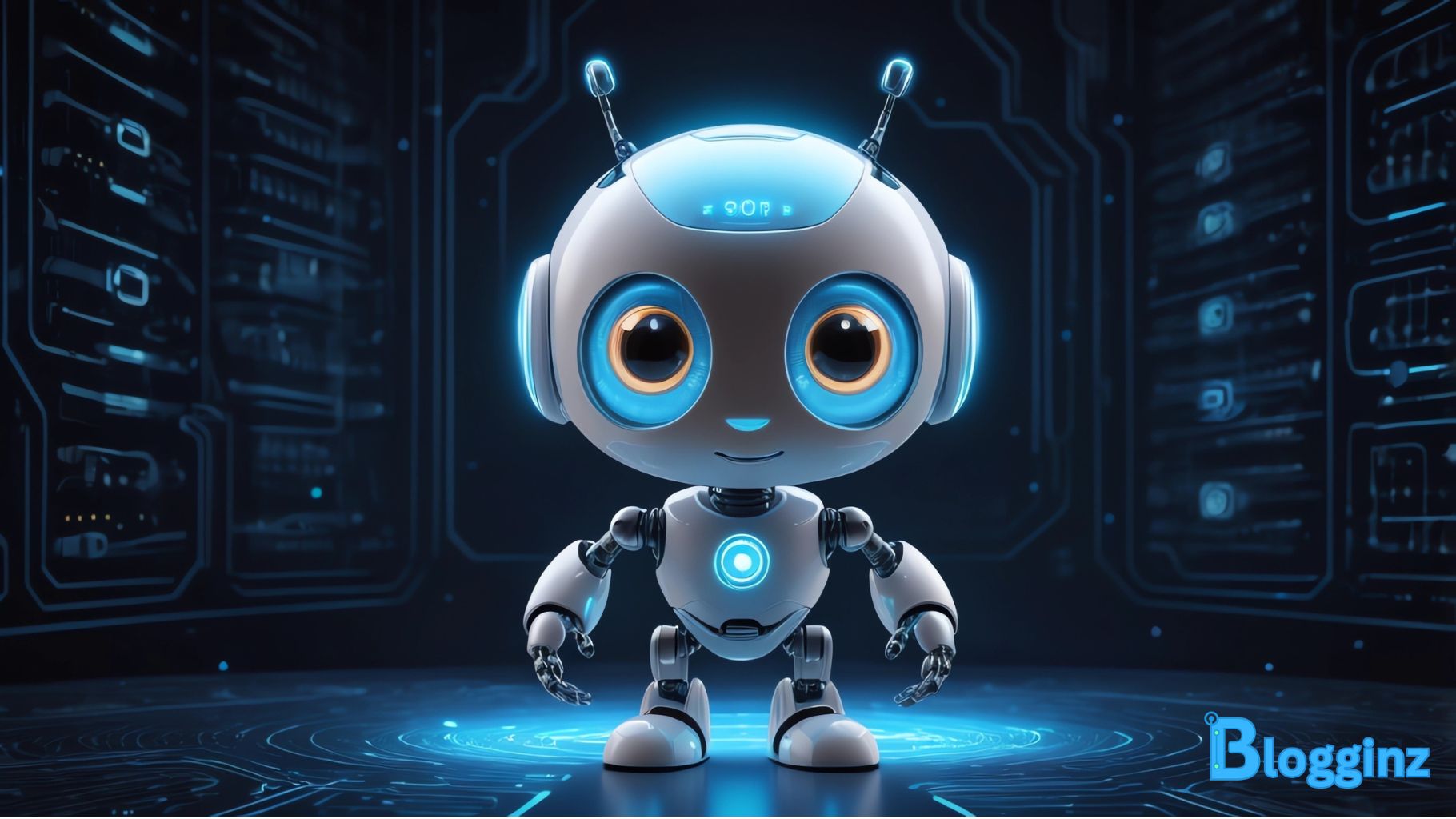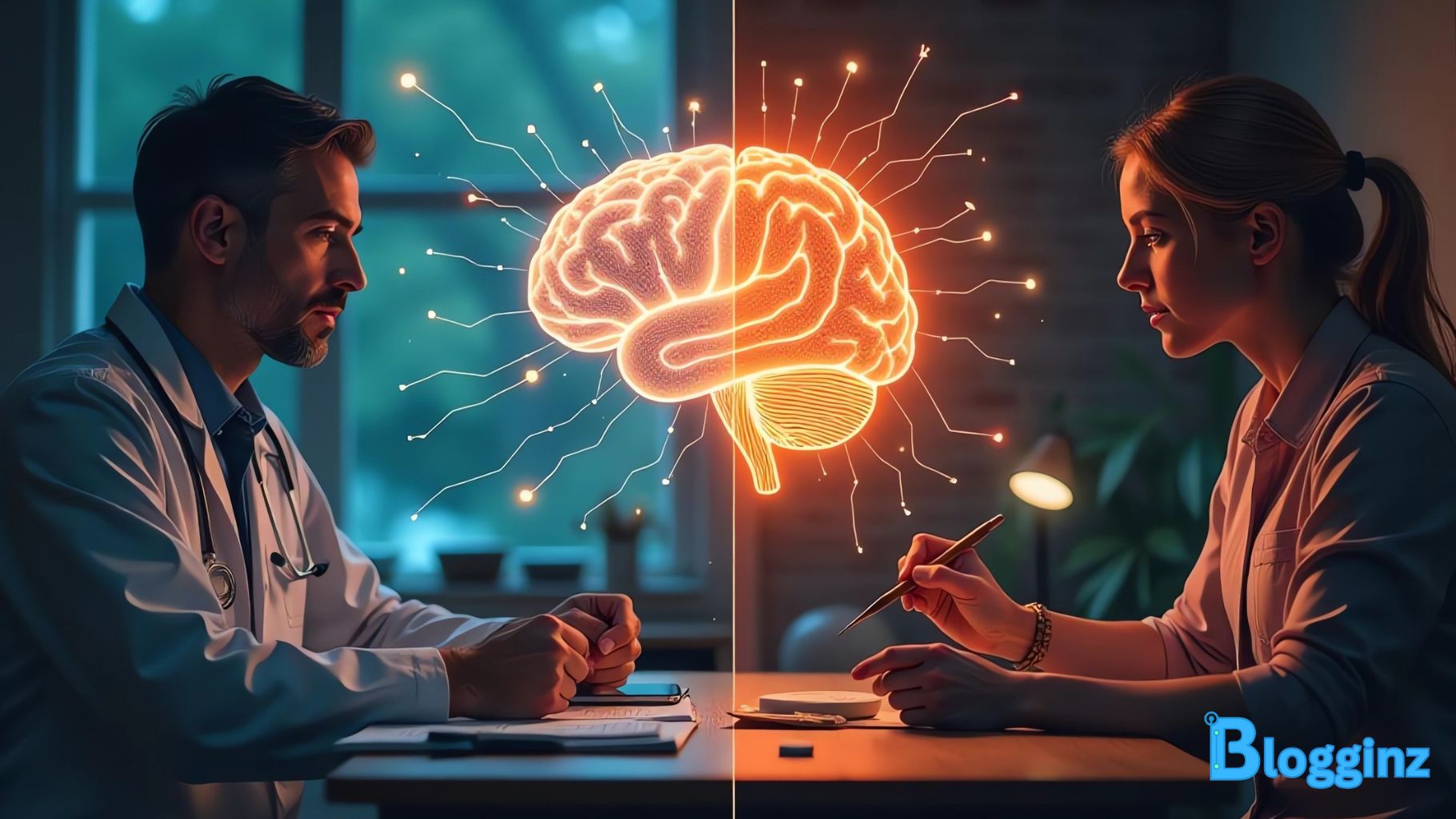Artificial intelligence (AI) has progressed quickly lately, hence presenting rather fundamental issues on the nature of intelligence. Artificial intelligence technologies are becoming more and more sophisticated, from self-driving vehicles to chatbots such as ChatGPT. But can computers genuinely think like people? Alternatively, are they only imitating intelligence based on large volumes of data and sophisticated algorithms?
This study looks at the distinctions between artificial intelligence and the human brain to see whether robots can realize true thought, creativity, and consciousness, or whether they will always be strong but essentially different tools.
1. Understanding AI: How Machines “Think”
AI operates through machine learning (ML) and deep learning models, primarily using neural networks inspired by the human brain. However, there are key differences:
How AI Processes Information
Data-Driven Learning: AI learns by looking at lots of data. While humans can pick things up from just a few examples, AI usually needs thousands or even millions of data points.
Algorithmic Decision-Making: It works by following specific mathematical rules. So, it doesn’t get things like we do; it just figures out what’s likely to happen based on the info it has.
No Consciousness: AI doesn’t have feelings or thoughts of its own—it’s not aware of itself or curious about the world.
Types of AI
The types of AI are: Narrow AI, General AI, and Superintelligent AI.
Narrow AI, also known as weak AI, excels at one particular task, such as translating languages or detecting faces. Then there is general artificial intelligence, or strong AI, a philosophical idea that could execute any mental job a person could, although we have yet to have such. A stride even further, superintelligent AI might outsmart humans; nevertheless, this is still just a notion at present. AI technologies like GPT-4 or AlphaGo are now remarkably excellent at particular jobs, yet they lack the broad reasoning abilities humans possess.
2. The Human Brain: A Bio Marvel
Nevertheless, the human brain is the most complex system in the universe. This distinguishes it from artificial intelligence:
Important Characteristics of Human Intelligence
Adaptability: Humans may be able to learn from little information, generalize knowledge, and use it creatively.
Emotional intelligence is something AI cannot really duplicate: emotions, empathy, and social awareness.
Humans have subjective experiences, free will, and the power to ponder their ideas; therefore, consciousness and self-awareness define them.
Common Sense Reasoning: Unlike artificial intelligence, people naturally grasp context, nuance, and real-world physics without specialized instruction.
Neuroplasticity vs. AI Training
Lifelong learning is made possible by neuroplasticity, which helps the brain improve itself. Still, artificial intelligence has to be retrained on fresh data and cannot naturally change beyond its coding.
3. Can artificial intelligence think like humans?

Claims AI Could Copy Human Thinking
Advanced Language Models: AI, such as ChatGPT, can compose poetry, have talks, and produce human-like text.
Pattern Recognition: In jobs like image classification and game strategy (e.g., chess, Go), artificial intelligence surpasses humans.
Deep learning algorithms copy neuron connections, therefore implying a structural equivalent to the brain.
Why does artificial intelligence nevertheless fall short?
- AI predicts from data; it does not “comprehend” words or ideas.
- AI may combine current concepts, but humans innovate unlike it.
- Machines mimic reactions; they lack joy, grief, or motivation—they have no emotional experience.
- While people can hypothesize and envision, AI cannot reason beyond its training data.
4. The Turing Test and Beyond: Measuring Machine Intelligence
Alan Turing suggested that a machine could be regarded as “intelligent” if it could communicate equally with a human. Although some artificial intelligence algorithms pass limited versions of this test, detractors say that imitating speech is not the same as true knowledge.
Alternative Tests for True AI Intelligence
The Lovelace Test: Can artificial intelligence produce anything genuinely unique rather than reprocess already available data?
If artificial intelligence (like a person in a room translating Chinese without knowing the language) processes symbols without knowing them, does it actually “think”? John Searle’s Chinese Room Argument asks.
Self-awareness tests: Can artificial intelligence show introspection, desires, or consciousness?
No AI has yet persuasively crossed these higher intelligence standards.
5. Ethical and Philosophical Implications
Should artificial intelligence ever develop human-like thought, ethical issues follow:
Rights of artificial intelligence: Should a conscious machine have legal rights?
Control and Safety: Could superintelligent artificial intelligence act against human interests?
Job Displacement: How will society adjust if most cognitive activities outperform humans?
While optimists like Ray Kurzweil think AI would increase human potential, philosophers like Nick Bostrom caution against existential dangers.
6. The Future: Collaboration or Competition?

AI will probably improve our capabilities rather than substitute for people.
Medical artificial intelligence helps doctors to diagnose, but it does not take the place of empathy in patient care.
Creative artificial intelligence helps artists and writers generate ideas, but it does not replace human expression.
Scientific artificial intelligence speeds up research while people make ethical and interpretive judgments.
True artificial general intelligence (AGI) is far off; for the moment, the human brain’s special mix of creativity, intellect, and emotion is unmatched.
Conclusion
Though artificial intelligence can replicate elements of human thought, it lacks actual understanding, consciousness, and inventiveness. While the human brain distinguishes itself with its adaptability, emotional depth, and instinctive reasoning, machines are good at data processing and pattern detection.
Though for the time being, the core of thinking is a particularly biological process, the future could move artificial intelligence nearer to human-like intellect. Rather than fearing artificial intelligence, we should concentrate on maximizing its advantages while developing the unique characteristics of human intellect.
Final Thought:
“AI is a reflection of human ingenuity, not a replacement for human intelligence.”





No comments yet
Be the first to comment